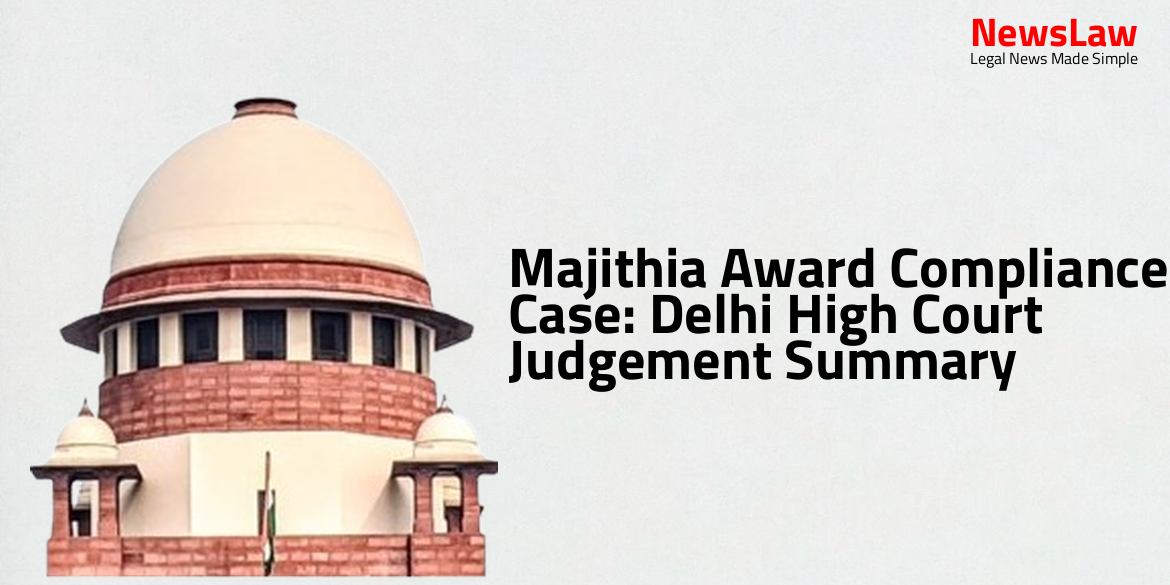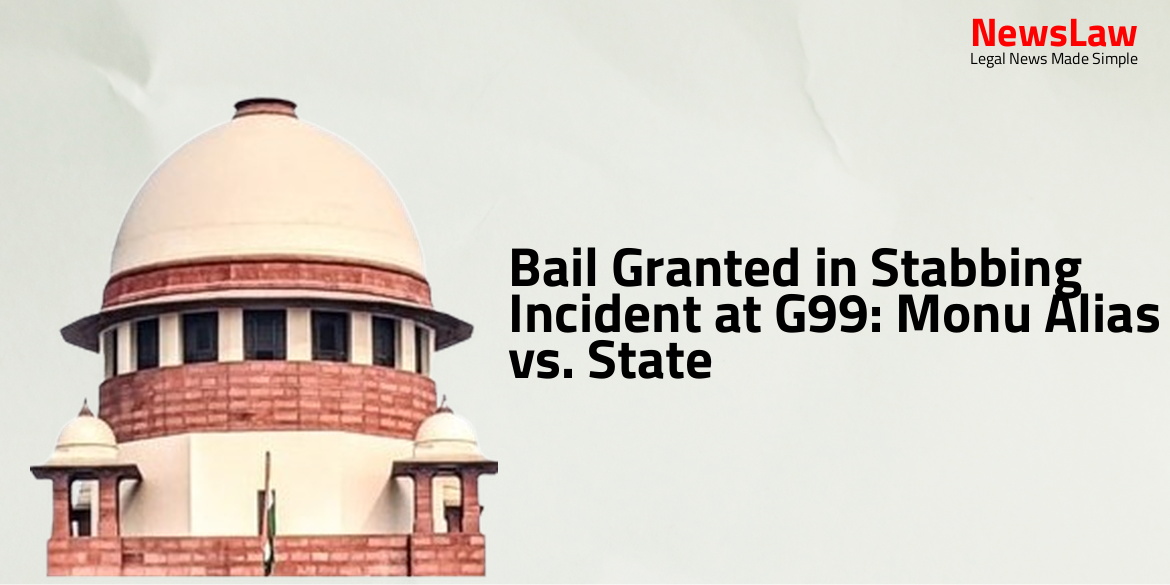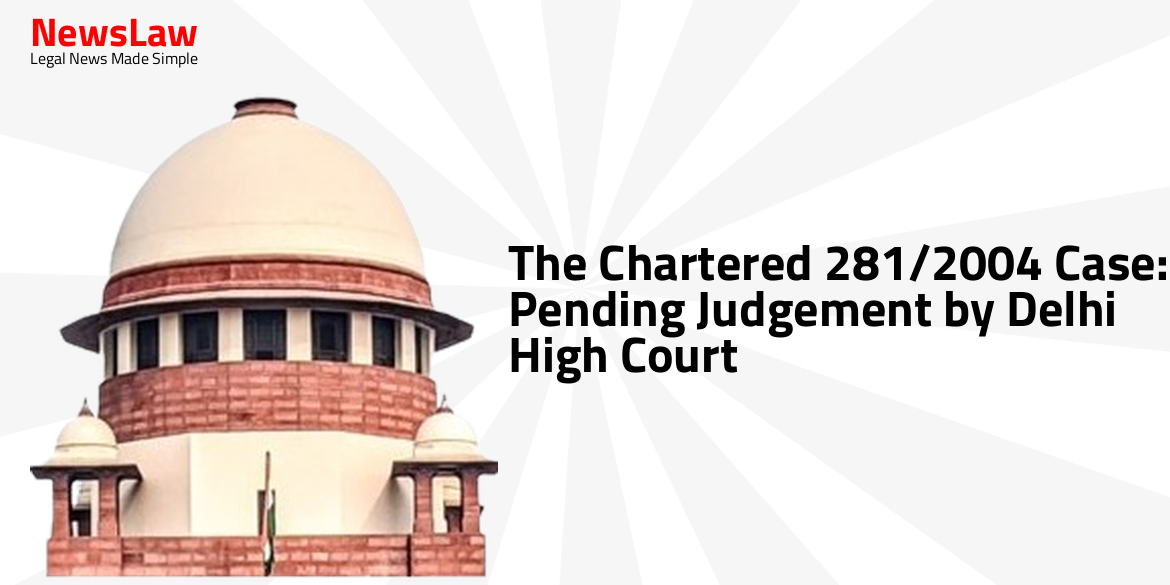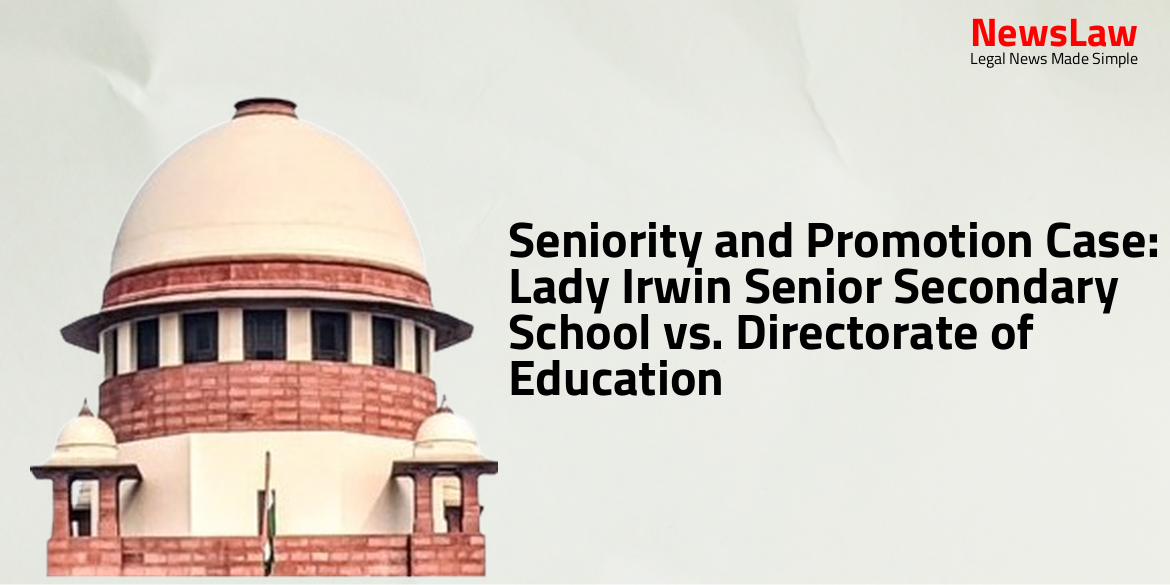In a recent Delhi High Court judgement, the implementation of the Majithia Wage Board Award was the focal point of the case. The Court addressed concerns raised by a printing and publishing company and the Statesman Mazdoor Union regarding compliance with the award. The decision sheds light on the significance of following Wage Board recommendations in the newspaper industry. Stay tuned to understand the implications of the Court’s ruling in the Majithia Award Compliance Case.
Facts
- The Central Government has the prerogative to accept or reject the recommendations of the Wage Boards.
- The appellant’s claim for exemption under Proviso to Clause 21 of the Majithia Award was dismissed by the learned Single Judge.
- The dismissal of the writ petitions made the Majithia Award final and binding on all newspaper establishments.
- Government’s non-acceptance of certain recommendations does not invalidate the entire report.
- Recommendations related to retirement age and other matters outside the Wage Boards’ mandate were not accepted by the Government.
- The Wage Boards’ recommendations are valid, based on genuine considerations, with no grounds for interference under Article 32 of the Constitution.
- Newspaper establishments, including the appellant, are obligated to comply with the recommendations and pay arrears/revised wages to employees.
- Central Government does not need to hear parties again unless modifications alter the character of recommendations and affect parties.
- Respondent no.2 allowed applications for increased wages as per the Majithia Award and issued orders for payment of arrears by the appellant.
- Appellant’s non-compliance led to the issuance of a Recovery Certificate by the District Collector.
- Appellant filed writ petitions challenging classification and capacity to pay arrears, seeking quashing of orders and notices issued by respondents.
- The Statesman Mazdoor Union representing 55 employees and 9 employees filed applications under Section 17(1) of the WJ Act against the printing and publishing company.
- The company contested the applications, claiming exemption from making arrears payment based on the Proviso to Clause 21 of the Majithia Award.
- The company’s responses were dated 21.07.2014, 11.12.2014, and 08.01.2015.
Issue
- The primary issue before the learned Single Judge was the implementation of the Majithia Wage Board Award in relation to heavy cash losses claimed by the appellant.
- The appellant had initially claimed heavy cash losses to avoid paying revised wages as per the award, but later gave up this claim before the current Court.
- The focus of the judgement was on the discrepancy between the appellant’s initial claim and their updated plea in the Court.
Arguments
- The appellant argued that any dispute regarding the due amount cannot be adjudicated under the summary procedure of Section 17(1) of the WJ Act.
- The appellant’s submission was that since they participated in the proceedings before the respondent without challenging jurisdiction, they cannot raise jurisdictional issues at a later stage.
- The appellant cited various legal precedents to support their position.
- The appellant filed appeals under the Letters Patent seeking to quash the impugned judgments and reviews.
- The appellant contended that the Recovery Certificate could not have been issued due to the dispute over the due amount.
- The appellant presented balance sheets and certificates to show financial losses, claiming exemption under the Proviso to Clause 21 of the Majithia Award.
- The appellant argued that the heavy cash losses suffered justify exemption under the Majithia Award.
- The appellant raised doubts about their classification under the Majithia Award but did not elaborate on this point.
- The appellant pointed out that a dispute was raised before the respondent, requiring the procedure under Section 17(2) of the WJ Act to be followed.
- The appellant criticized the learned Single Judge for not considering their financial incapacity due to consistent losses.
- The appellant sought a review on unadjudicated issues and complained about the delayed implementation of the Majithia Award.
- The appellant insisted on the importance of following the procedural requirements of the WJ Act in case of disputes.
- The arguments of the appellant focused on issues related to jurisdiction, due amounts, financial losses, and compliance with the Majithia Award.
- The learned counsel for the respondent no.3 requested the dismissal of both appeals.
- Other counsels for the respondents also supported the arguments presented by respondent no.3.
Analysis
- The appellant failed to raise any dispute regarding the amount to be paid to the employees before the Authority.
- The Court finds that the appellant cannot introduce new arguments at this stage which were not raised before the learned Single Judge.
- The appellant acquiesced to the jurisdiction of the Authority by participating and submitting responses.
- The argument of ‘heavy cash losses’ as a defense was found to be unsustainable by the Court.
- The appellant cannot be permitted to raise jurisdictional issues belatedly after participating in the proceedings.
- The Court emphasized that the appellant cannot reargue the same contentions that were already rejected by the learned Single Judge.
- The appellant’s plea concerning ‘huge cash losses’ was dismissed based on factual financial data.
- The Court found that the Appeal Court cannot consider new legal submissions not raised at earlier stages and without foundation.
- The legislative distinction between Section 17(1) and Section 17(2) of the WJ Act was highlighted by the Court.
- The Court emphasized that the findings of the learned Single Judge must be considered without introducing new arguments.
- The appellant’s attempt to introduce fresh arguments after earlier pleas were rejected was deemed impermissible.
- The Court analyzed the financial data provided by the appellant which did not align with the claim of continuous heavy losses.
- The Court highlighted that the appellant did not contest the jurisdiction of the Authority during the proceedings.
- The appellant cannot bring forth new arguments at the appellate stage without direct relevance to the case.
- The Court reaffirmed that certain arguments or issues cannot be raised after being rejected at earlier stages of the litigation.
- The Supreme Court distinguished between heavy cash losses and mere financial difficulties.
- It clarified that heavy cash losses lead to insolvency, while financial difficulties may not necessarily result in insolvency.
- The Court emphasized the importance of understanding the distinction between the two concepts in legal contexts.
- Section 17(1) of the WJ Act allows a newspaper employee to recover any amount due from their employer.
- The recovery can be sought before the concerned State Government.
- This provision provides a mechanism for newspaper employees to claim their dues from employers.
- The Court does not agree with the legal submissions or the applicability of the judgments cited by the appellant.
- The appellant has failed to make a case.
- The appeals are deemed meritless.
- The Majithia Award and subsequent Supreme Court judgments are considered in the decision.
- Based on analysis and legal position, there is no need to interfere with the impugned Judge’s decision.
Decision
- Both appeals dismissed
- Pending applications also dismissed
- Appellant directed to comply with findings of Competent Authority and learned Single Judge within four weeks
Case Title: THE STATESMAN LTD Vs. GOVT OF NCT OF DELHI & ORS. (2024:DHC:4398-DB)
Case Number: LPA-779/2023




Ref: Statesman Ltd’s case. Could you pl provide at least one Claim Petition filed by the Mazdoor Union. One among 64 Claim Petitions is suffice